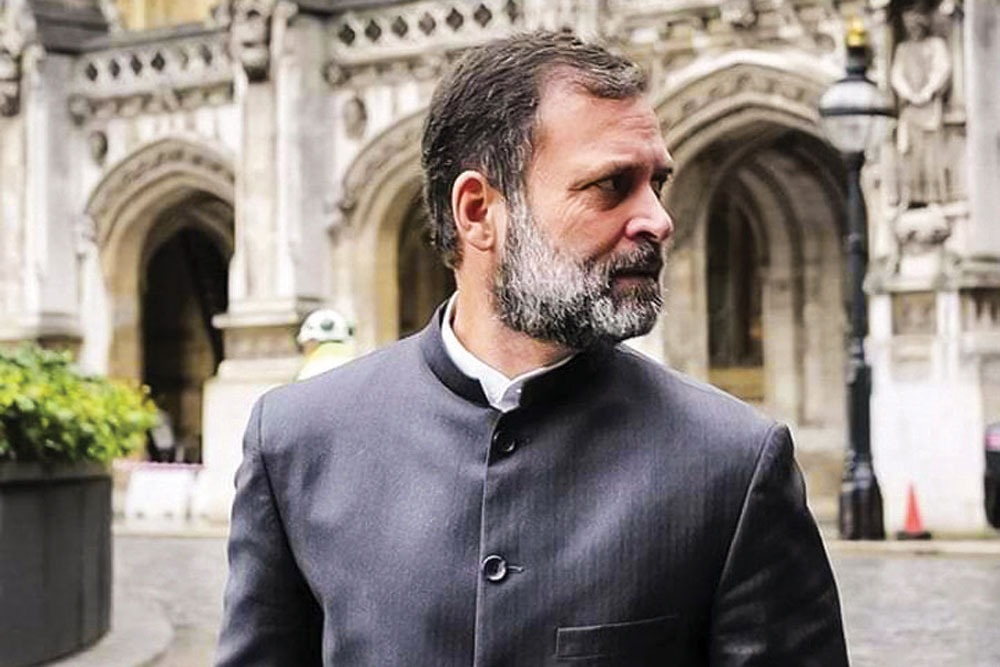
Clarifying Rahul Gandhi’s Remarks: A Misinterpreted Controversy
In the tumultuous landscape of Indian politics, it is not uncommon for statements to be misinterpreted or taken out of context, often resulting in unnecessary controversies. The recent uproar in Parliament over Rahul Gandhi’s remarks during the debate on the motion of thanks to the President’s address is a prime example of this phenomenon. Contrary to the Bharatiya Janata Party’s (BJP) accusations, Rahul Gandhi did not label all Hindus as violent; rather, his comments were specifically aimed at the BJP and its affiliates, highlighting the disparity between the ideals of Hinduism and the actions of certain political entities.
The Context of Rahul Gandhi’s Speech
During his address, Rahul Gandhi took a critical stance against the BJP, accusing it of fostering communal divisions and mishandling the Agnipath recruitment policy for the armed forces. His remarks were directed at the party’s treatment of Agniveers and the perceived disparities in their recognition compared to other recruits. Gandhi’s critique was aimed at the policies and actions of the BJP, not at Hinduism or Hindus as a whole.
The Specific Remarks
Gandhi’s statement, “Our great leaders preached non-violence… those who claim to be Hindus only preach hatred… aap Hindu ho hi nahin (you are not even Hindu),” was a pointed critique of the BJP’s approach to politics. By stating this, Gandhi was emphasizing that the values espoused by the BJP contradict the core principles of Hinduism, which are rooted in non-violence and compassion.
Further, by brandishing a picture of Lord Shiva and stating, “If you look at Lord Shiva’s image, you’ll understand that Hindus can never propagate fear and hatred… but the BJP spreads fear and hatred 24×7,” Gandhi was underscoring the disparity between the BJP’s actions and the teachings of Hinduism. His remarks were intended to highlight the misuse of religious identity for political gain, not to denounce Hinduism or its followers.
The BJP’s Reaction
The BJP swiftly condemned Gandhi’s remarks, with party president and Union Minister JP Nadda demanding an apology. Nadda’s interpretation of Gandhi’s statements as an attack on Hindus as a whole is a clear misrepresentation. By asserting, “Rahul Gandhi Ji must immediately APOLOGISE to all Hindus for terming them as violent,” Nadda and the BJP are deliberately misconstruing Gandhi’s words to stir political controversy and tarnish the image of the Leader of the Opposition.
The Reality: Rahul Gandhi’s True Intent
It is essential to recognize that Rahul Gandhi, as a sitting Member of Parliament and Leader of the Opposition, would not and could not target an entire religious community. His criticisms were directed at the BJP, the Rashtriya Swayamsevak Sangh (RSS), and Prime Minister Narendra Modi, asserting that these entities do not represent the entirety of Hinduism. Gandhi’s comments were a call to differentiate between the political misuse of religion and the true essence of Hinduism.
The Political Strategy
The BJP’s voluntary misinterpretation of Gandhi’s statements is a strategic move to gain political leverage. By framing his remarks as an attack on Hindus, the BJP aims to rally its base and discredit Gandhi. This tactic is a common one in politics, where statements are twisted to serve specific agendas. However, it is crucial for the public to see through this veneer and understand the true context and intent behind Gandhi’s words.
Rahul Gandhi’s speech in Parliament was a critique of the BJP’s policies and actions, not an indictment of Hinduism or Hindus. His remarks were intended to highlight the contradiction between the BJP’s actions and the principles of Hinduism. The BJP’s reaction, demanding an apology and framing his comments as an attack on Hindus, is a deliberate misinterpretation for political gain. It is important to clarify this distinction to prevent the unnecessary escalation of tensions and to focus on the real issues at hand.
In the realm of politics, words are powerful tools that can be wielded for various purposes. As responsible citizens, it is imperative to discern the true intent behind political statements and not be swayed by misrepresentations that serve only to divide and mislead.
